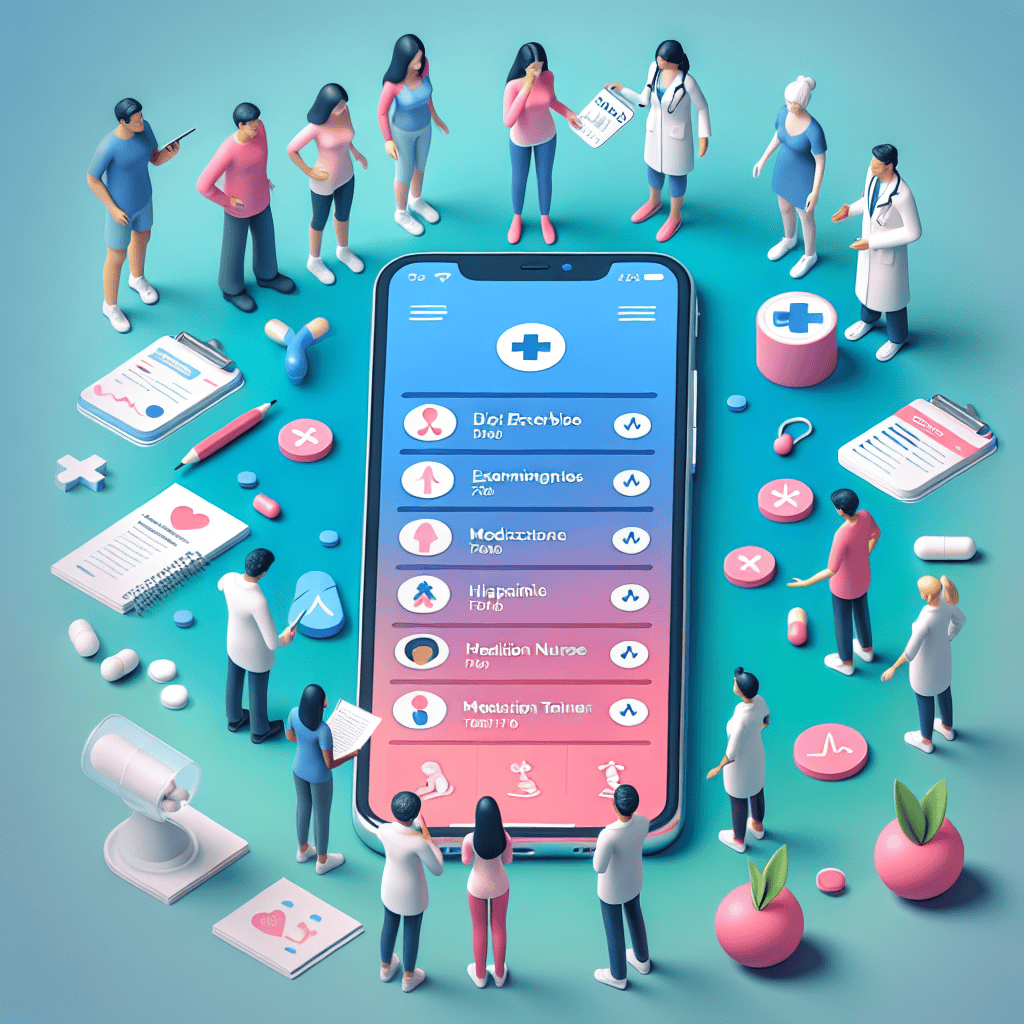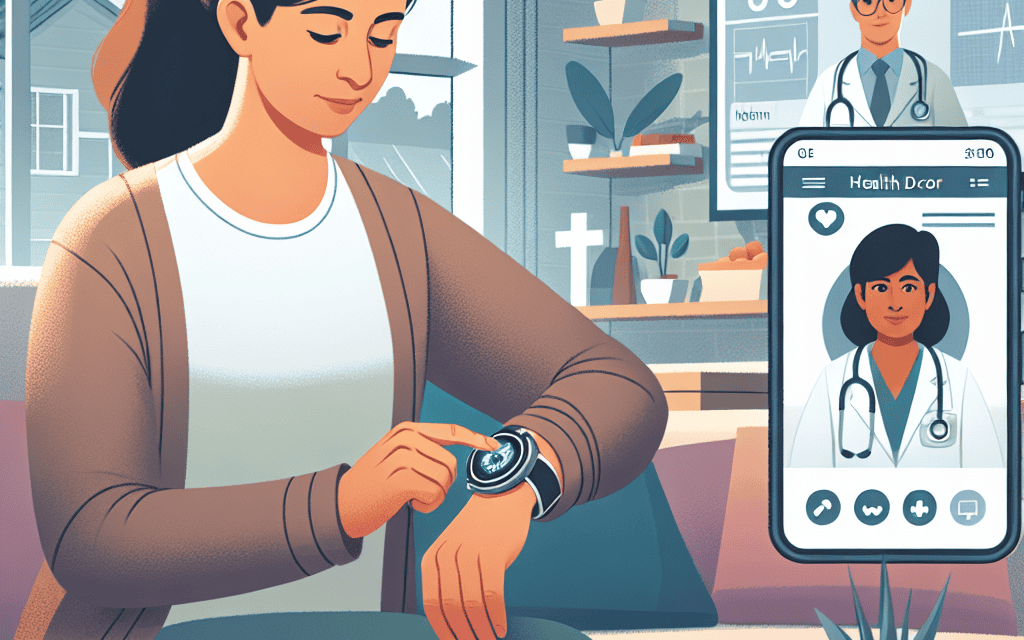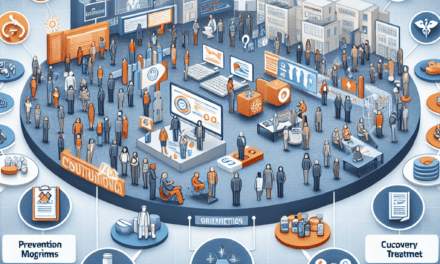-
Table of Contents
- Managing Chronic Diseases with Mobile Health Solutions
- The Rise of Mobile Health Solutions
- Understanding Mobile Health Solutions
- Statistics and Market Growth
- Case Study: Diabetes Management
- Benefits of Mobile Health Solutions
- Challenges and Limitations
- Mobile Health Solutions for Heart Disease Management
- Remote Monitoring and Telemedicine
- Mobile Apps for Lifestyle Management
- Case Study: Heart Failure Management
- Benefits of Mobile Health Solutions for Heart Disease
Managing Chronic Diseases with Mobile Health Solutions

Chronic diseases, such as diabetes, heart disease, and asthma, are long-lasting conditions that often require ongoing medical attention and lifestyle management. With the advent of mobile health (mHealth) solutions, managing these diseases has become more accessible and efficient. This article explores how mobile health solutions are transforming the management of chronic diseases, providing insights into their benefits, challenges, and future potential.
The Rise of Mobile Health Solutions
The proliferation of smartphones and mobile applications has revolutionized the healthcare industry. Mobile health solutions encompass a wide range of technologies, including apps, wearable devices, and telemedicine platforms, designed to improve health outcomes and patient engagement. These tools offer a convenient way for patients to monitor their health, access medical information, and communicate with healthcare providers.
Understanding Mobile Health Solutions
Mobile health solutions are defined as medical and public health practices supported by mobile devices. These solutions include a variety of applications and services that enable patients to manage their health more effectively. Key components of mHealth solutions include:
- Mobile apps for tracking health metrics
- Wearable devices for real-time monitoring
- Telemedicine platforms for remote consultations
- SMS and notification systems for reminders and alerts
These technologies empower patients to take control of their health by providing them with the tools and information they need to make informed decisions.
Statistics and Market Growth
The global mHealth market has experienced significant growth in recent years. According to a report by Grand View Research, the market size was valued at USD 40.7 billion in 2020 and is expected to expand at a compound annual growth rate (CAGR) of 29.2% from 2021 to 2028. This growth is driven by the increasing prevalence of chronic diseases, the rising adoption of smartphones, and the demand for remote patient monitoring.
Furthermore, a study published in the Journal of Medical Internet Research found that 58% of smartphone users have downloaded at least one health-related app, highlighting the widespread adoption of mHealth solutions among consumers.
Case Study: Diabetes Management
Diabetes is a chronic disease that affects millions of people worldwide. Mobile health solutions have proven to be particularly effective in managing this condition. For instance, the mySugr app, which is designed for diabetes management, allows users to log their blood sugar levels, track their carbohydrate intake, and receive personalized feedback. A study published in the Journal of Diabetes Science and Technology found that users of the mySugr app experienced a significant reduction in their HbA1c levels, indicating improved blood sugar control.
Additionally, wearable devices like the Dexcom G6 Continuous Glucose Monitoring (CGM) system provide real-time glucose readings, enabling patients to make timely adjustments to their diet and medication. These tools not only improve health outcomes but also enhance the quality of life for individuals with diabetes.
Benefits of Mobile Health Solutions
Mobile health solutions offer numerous benefits for managing chronic diseases. These include:
- Improved patient engagement and self-management
- Enhanced communication between patients and healthcare providers
- Real-time monitoring and data collection
- Personalized feedback and recommendations
- Increased access to healthcare services
By leveraging these benefits, patients can achieve better health outcomes and reduce the burden of chronic diseases on healthcare systems.
Challenges and Limitations
Despite their potential, mobile health solutions face several challenges and limitations. These include:
- Data privacy and security concerns
- Lack of standardization and regulation
- Limited access for underserved populations
- Technological barriers and user resistance
Addressing these challenges is crucial to ensuring the widespread adoption and effectiveness of mHealth solutions in managing chronic diseases.
Mobile Health Solutions for Heart Disease Management
Heart disease is a leading cause of death worldwide, and managing this condition requires a comprehensive approach that includes lifestyle changes, medication adherence, and regular monitoring. Mobile health solutions offer innovative ways to support patients in managing heart disease effectively.
Remote Monitoring and Telemedicine
Remote monitoring and telemedicine have become essential components of heart disease management. Wearable devices, such as smartwatches and fitness trackers, can monitor heart rate, physical activity, and other vital signs in real-time. These devices provide valuable data that can be shared with healthcare providers for timely interventions.
Telemedicine platforms enable patients to consult with cardiologists and other specialists from the comfort of their homes. This is particularly beneficial for patients with limited mobility or those living in remote areas. A study published in the Journal of the American College of Cardiology found that telemedicine interventions led to significant improvements in blood pressure control and medication adherence among patients with hypertension.
Mobile Apps for Lifestyle Management
Mobile apps play a crucial role in helping patients manage their lifestyle and reduce the risk of heart disease. Apps like MyFitnessPal and Noom offer personalized diet and exercise plans, allowing users to set goals and track their progress. These apps also provide educational resources on heart-healthy habits, empowering patients to make informed decisions about their health.
Furthermore, apps like CardioSmart Med Reminder help patients adhere to their medication schedules by sending reminders and alerts. Medication adherence is a critical factor in managing heart disease, and mobile apps can significantly improve compliance rates.
Case Study: Heart Failure Management
Heart failure is a chronic condition that requires ongoing management and monitoring. The use of mobile health solutions has shown promising results in improving outcomes for patients with heart failure. For example, the Heart Failure Society of America (HFSA) developed the HF Path app, which provides patients with educational resources, symptom tracking, and medication management tools.
A study published in the Journal of Cardiac Failure found that patients using the HF Path app experienced a reduction in hospital readmissions and improved quality of life. The app’s ability to provide real-time feedback and support was instrumental in achieving these outcomes.
Benefits of Mobile Health Solutions for Heart Disease
Mobile health solutions offer several benefits for managing heart disease, including:
- Improved access to healthcare services
- Enhanced patient engagement and self-management
- Real-time monitoring and data collection
- Personalized feedback and recommendations
- Reduced healthcare costs and hospital readmissions
These benefits contribute to better health outcomes and a higher quality of life for patients with heart disease.





